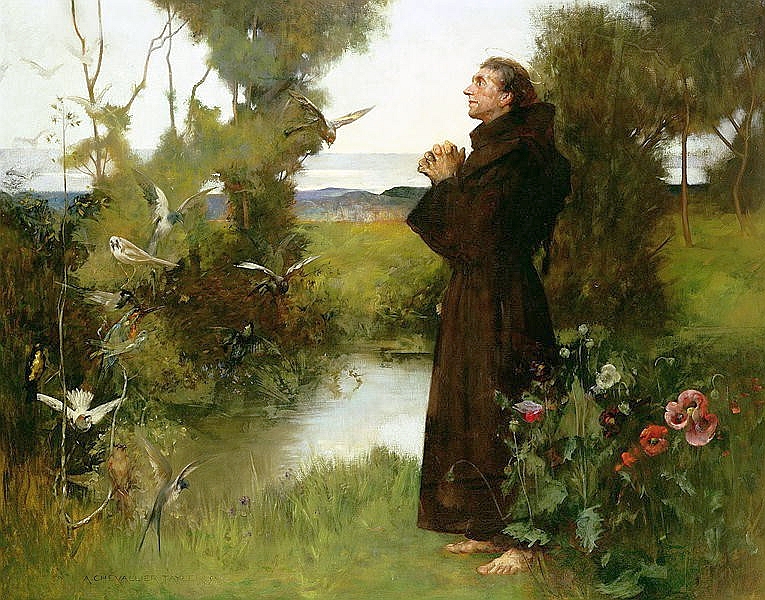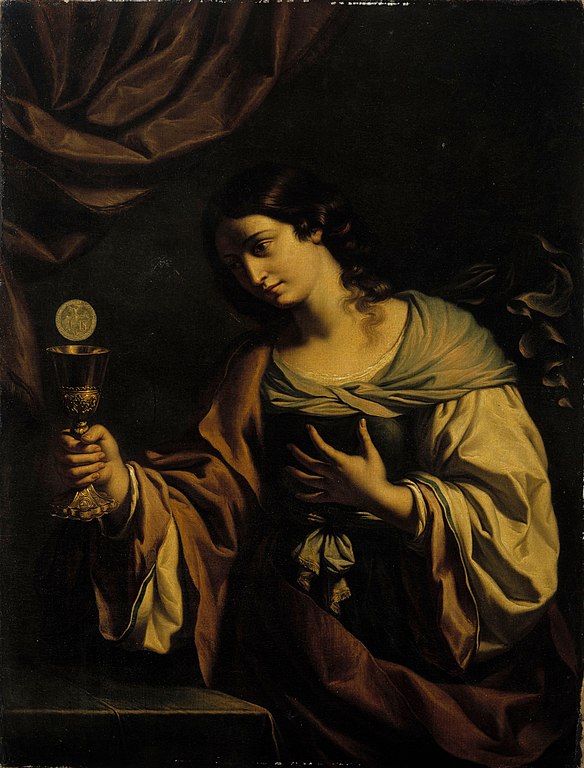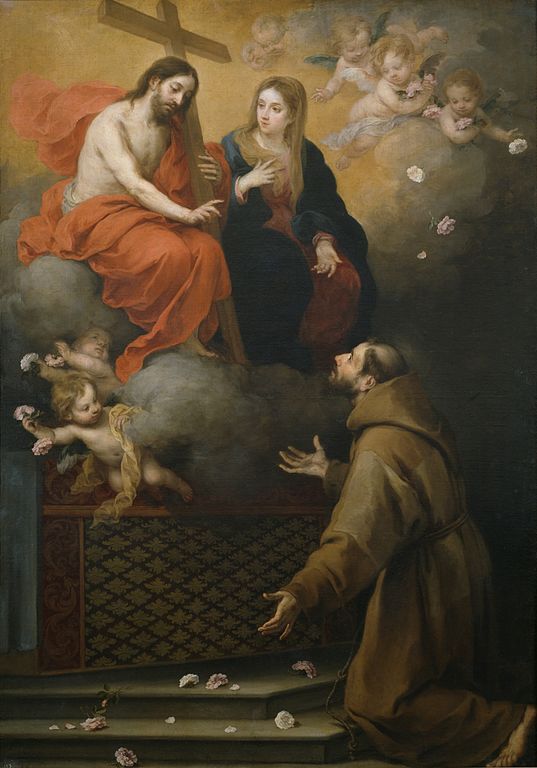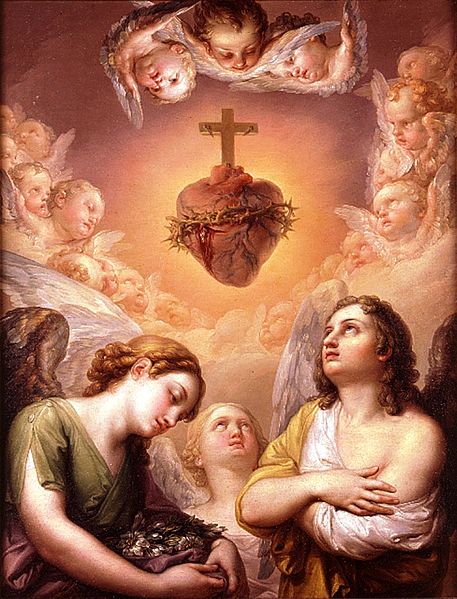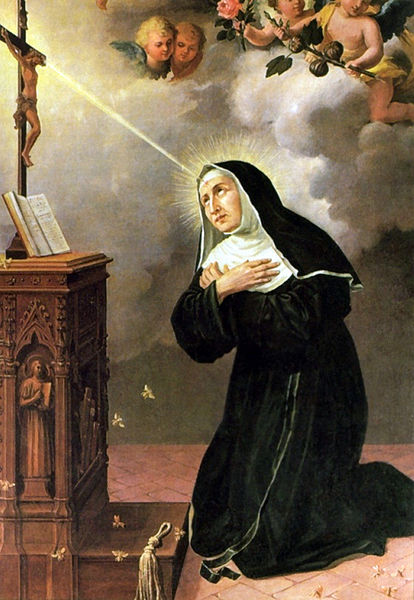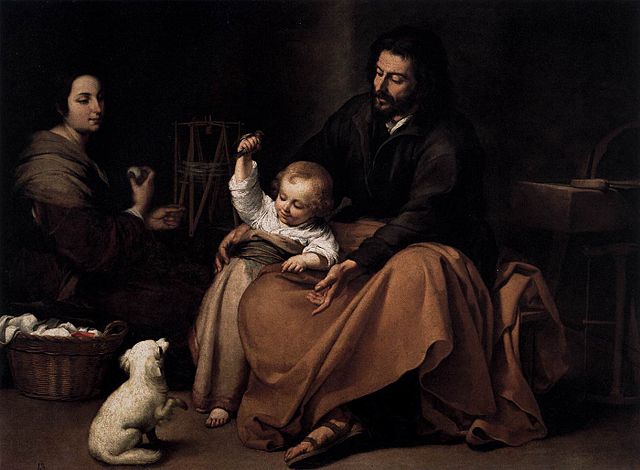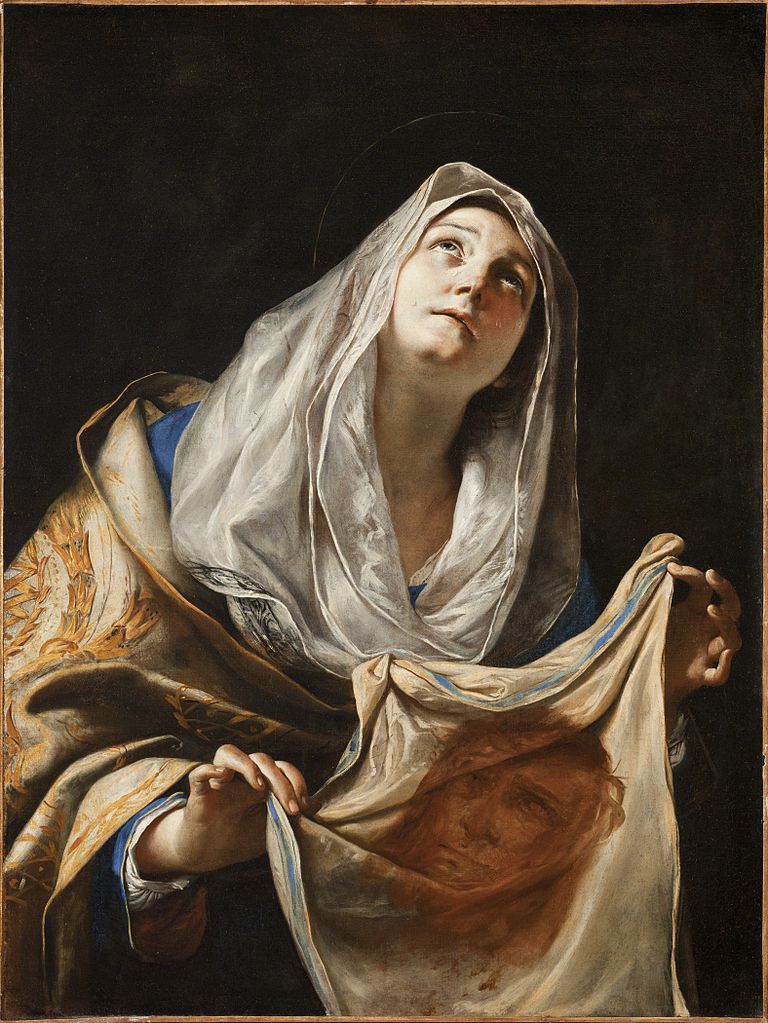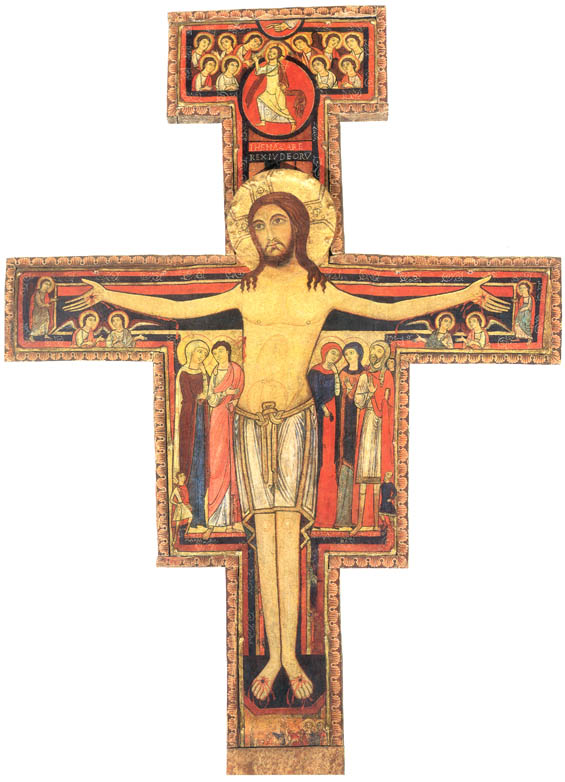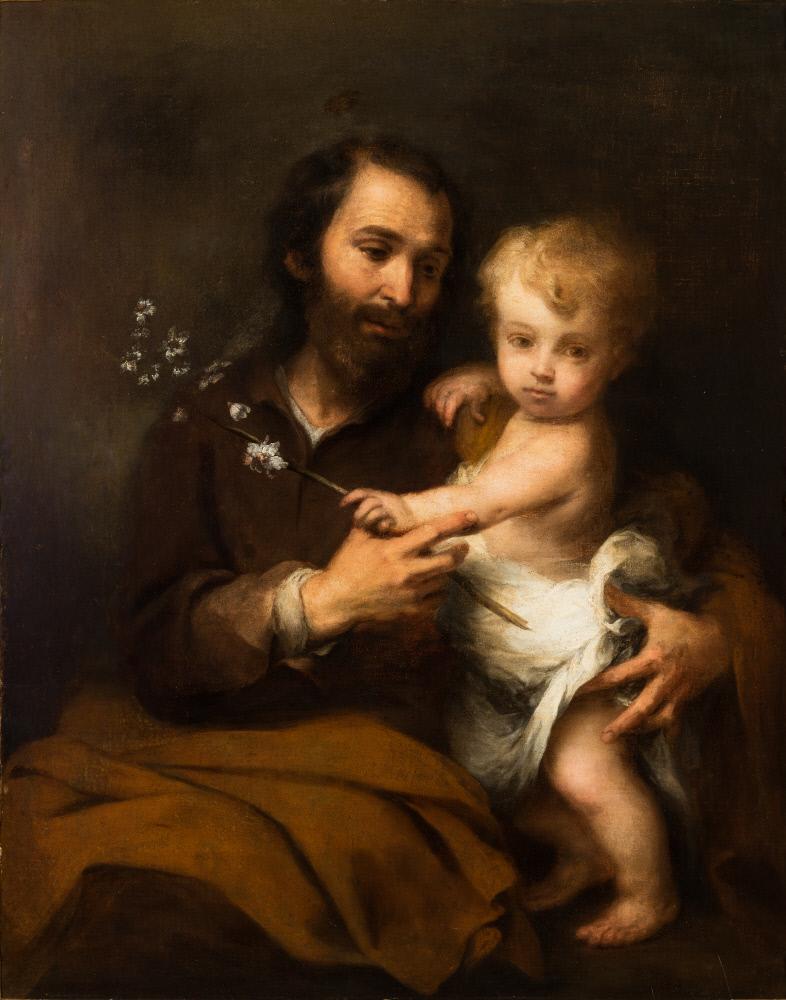Getting to know Saint Francis of Assisi (1182 – 1226 A.D.) is a fascinating exercise in discovery. As his feast day comes around each year, we can gain many fresh insights that take us beyond the widespread perception of Francis as merely a lover of creation — most notably, animals — and patron of ecology.
Category Archives: Living on Grace
In Assisi, a Family of Saintly Women
To honor the August 11th feast of Saint Clare of Assisi (1194 – 1253 A.D.), we consider the life and spirituality of this first female Franciscan religious.
The Portiuncula: Francis of Assisi’s Beloved “Little Portion”
On August 2nd each year, Franciscans world-wide celebrate a very special feast day, the Feast of Our Lady of the Angels of Portiuncula. Read the rest…
Sacred Heart: Love That Crushes Evil
“Sacred Heart devotion isn’t our devotion. It’s God’s. It’s God’s devotion to us,” writes Fr. James Kubicki, S.J., in his book, A Heart on Fire. He also reminds us that the Sacred Heart devotion didn’t begin in the seventeenth century with revelations to a Visitation nun named St. Margaret Mary Alacoque—it began “before time, in the eternal Heart of God.” This truth aids the joyful rediscovery of God’s perfect love for us. God doesn’t need our love in return, but in the mystery of divine mercy, He desires our reciprocal love. God intends an abiding, loving communion with us. While our hearts are often fickle, forgetful and fearful, His heart is intently focused on us.
In the present culture, so lacking in love, our concept of love is easily distorted, distracted, and destroyed. Devotion to the Sacred Heart of Jesus is a powerful provision against the destruction of authentic love. Christ is present, living and active and his Sacred Heart beats a love song that is uniquely personal.
The devil, our ancient enemy (cf. Eph 6:11-13, Job 2:1-7, Zech 3:1-2, 1 Thes 2:18, Rev 12:10) methodically plots the crushing destruction of authentic love of God and neighbor. Diabolical temptation is aimed at the distortion of God’s image, distraction from our eternal goal, and the destruction of love. When the soul experiences the absence of authentic love, it readily succumbs to the seduction of diabolical liaisons. In the Church’s ministry of deliverance and exorcism we see this repeatedly. A heart on fire with and for divine love repels the demons.
The Catechism addresses the reality of evil and our need to “fix our eyes of faith on him who alone is its conqueror”.
“God is infinitely good and all his works are good. Yet no one can escape the experience of suffering or the evils in nature which seem to be linked to the limitations proper to creatures: and above all to the question of moral evil. Where does evil come from? “I sought whence evil comes and there was no solution”, said St. Augustine, and his own painful quest would only be resolved by his conversion to the living God. The revelation of divine love in Christ manifested at the same time the extent of evil and the superabundance of grace. We must therefore approach the question of the origin of evil by fixing the eyes of our faith on him who alone is its conqueror.”
When we fix our eyes and heart on the Sacred Heart of Jesus, we perceive that God’s heart is loving, omnipotent, omniscient, and protective of beloved creatures. The Sacred Heart burns with incomprehensible power to create good and destroy evil. Our focus is always the Eucharistic heart of God, not the work of the devil. Though we perceive the spiritual battle all around us, and discern well the spirits within and without, our hearts must commune with the Sacred Heart. During terrible temptations and worse diabolical onslaughts, the Sacred Heart is a refuge. Especially in Adoration, we can gaze, pray, converse, refresh, discern and be filled with the fuel of grace to resist the devil and proclaim Christ’s victory.
I’d propose seven ways that devotion to the Sacred Heart protects us from sin and evil.
 1. Sacred Heart: Incarnational
1. Sacred Heart: Incarnational
War broke out in Heaven at the revelation of God’s plan for the Incarnation of the Word.
The rebellion of one third of the angelic beings (now called demons), occurred because they would not accept that the Son of God would become “flesh” in the lowly form of a creature born of a “woman”. Devotion to the Sacred Heart cultivates incarnational love. Honoring the human heart of Jesus Christ, loving the Incarnate Word’s living heart, empowers us to imitate Him in loving the Father, self and others. This thwarts the devil’s plan to draw us away from our Creator with doubts that God is impersonal and disinterested. Our heart united to Christ’s heart becomes an impenetrable fortress. Demons may surround the fortress but they cannot enter.
2. Sacred Heart: Eucharistic
We enter the epic drama of the greatest love story ever through communion with Jesus in the Eucharist. Like the disciples on the road to Emmaus, we recognize Jesus in the breaking of the bread. Rekindling Eucharistic amazement is a term that Pope John Paul II used in his encyclical, “Ecclesia de Eucharistia.” This amazement of the human heart enkindles the fire of divine love within. Demons despise the Humble Host. According to the saints, demons fear the disciples who live an intentional Eucharistic life. The Sacred Heart is the vessel from which flows the life-saving Precious Blood. The devil works tirelessly to keep us from Holy Communion. To the dismay of demons who curse, Eucharistic life forms a garment of praise that blesses.
3. Sacred Heart: Revelation
Jesus Christ Incarnate reveals the face and heart of our Father in Heaven. We desperately need this revelation of truth for knowledge of who we are: children of God. When we accept the revelation of Jesus Christ, we know our dignity and destiny. These ground us in the truth so that when the Liar, Deceiver and Thief assails us, we stand firm in the revelation of God’s mercy. Devotion to the Sacred Heart helps us to remember the revelation; the Gospel of love. The devil methodically plots to distract us from the revelation and its relevancy. When the devil tempts us to doubt God’s existence or insinuates that He is mean or punishing, we can fly unto the protection of the Sacred Heart, remembering the revelation of divine love. Knowing who God says that I am strengthens me to resist the devil’s lies.
4. Sacred Heart: Word
Pope Benedict reminded us, “We must never forget that all authentic and living Christian spirituality is based on the word of God proclaimed, accepted, celebrated, and meditated upon in the Church” (Verbum Domini, 121). From the beginning, the Word is love. The creation of mankind is deliberately orchestrated to draw all things to God wherein is the fulfillment of all desire. In the Scriptures, we read about Christ’s life on earth; His many human encounters where love manifested. His heart is touched, He weeps, heals, serves, sleeps, eats, prays—he understands men and women. This flies in the face of the devil who seeks to obliterate our awareness of the dignity given us by God. The Word has a heart of infinite love focused on you and me. The devil hates this reality because he exists in loneliness and alienation from love.
5. Sacred Heart: Altar of Sacrifice
The Sacred Heart is a heart for others. Father Simon Tugwell, O. P., teaches, “The liturgy, faithfully celebrated, should be a long-term course in heart-expansion, makes us more and more capable of the totality of love that there is in the heart of Christ.” The perfect sacrifice of Christ’s love is perpetuated on the altar. This is also the proclamation of His victory over evil. The devil, personified pride, is undone by the humility of Christ on the altar of sacrifice. Love sacrifices; lays down His life. The Sacred Heart radiates love that is aimed at the other; the poor, forgotten, sick, and grieving. His heart dies and rises for our sake. Proud and spiteful, the devils envy Christ’s power to save through sacrificial love. Whenever we love sacrificially, our spiritual armor is strengthened.
6. Sacred Heart: Reparation
“True devotion to the Sacred Heart depends on a proper understanding of reparation, an old theological term that is related to atonement, expiation, salvation, and redemption” writes Fr. Kubicki. In his “Jesus of Nazareth”, Pope Benedict XVI wrote, “God cannot simply ignore man’s disobedience and all the evil of history; he cannot treat it as if it were inconsequential or meaningless. Such ‘mercy’ would be that ‘cheap grace’ to which Bonhoeffer rightly objected in the face of the appalling evil encountered in his day.” Christ paid the debt of sinners. Sin continues. Believers can unite with Christ’s reparation and offer up our sufferings and sacrifices to help repair. Devotion to the Sacred Heart helps us to enter Christ’s reparative love. Thus, we reclaim territory, robbing the devil of so many souls that he’d carry to the abyss.
7. Sacred Heart: Union with Immaculate Heart
The Church places the feast of the Sacred Heart on Friday and the feast of the Immaculate Heart on Saturday to reminds us their unity. Jesus Christ and His mother Mary are united in the will of the Father and they cannot be separated. Devotion and consecration to the Sacred Heart is spiritually complimentary to devotion to the Immaculate Heart. This holy liaison forms a powerhouse of protection against evil spirits. Between the Eucharistic Sacred Heart and the Virginal Immaculate Heart, there is a space reserved for you and me where no evil spirit dare to enter. Let us remain in the loving protection of the united Sacred and Immaculate Hearts where we are safe as we walk in the valley of death and evil.
Enthronement of the family to the Sacred Heart of Jesus is highly recommended by priests. For more information about this, I highly recommend Fr. James Kubicki’s book, A Heart on Fire.
Devotion affords spiritual benefits, for as Pope Benedict XVI wrote, “Our God is not a remote God intangible in his blessedness. Our God has a heart.”
To whom does your heart belong?
Blessed Carlo Acutis: Millennial Champion of the Holy Eucharist
Saint Rita of Cascia: Woman of Many Roles, Woman of Peace
About thirty miles southeast of Assisi, Italy, home to the renowned Saints Francis and Clare, lies the city of Cascia. A village on its outskirts saw the birth of another noteworthy saint, one who fulfilled a significant number of roles during her lifelong road to heaven.
Saint Joseph the Worker: A Good Man’s Work is Never Done
Traveling back in time two thousand or so years, to the Holy Land, we come upon a small, unassuming Galilean village called Nazareth, “Village of the Shoot,” its name evoking the hope for a Messiah prophesied by Isaiah: “There shall come forth a shoot from the stump of Jesse (Is 11:1)” (Mike Aquilina, St. Joseph and His World).
The Cloth of Compassion
Jesus walked the path of suffering alone. Almost all His friends ran away. Some betrayed Him. Some denied Him. Some just stood by and watched from afar. Few who knew Him offered a helping hand.
The Crucifix With Much to Say
For Christians all over the world, meditating on the crucifix takes on an even greater significance during the season of Lent, and particularly so as we approach the holiest days of our Church year. One crucifix which lends itself to reflection on a deeply spiritual level is the one known as the San Damiano Crucifix.
Joseph of Nazareth: Man of Sorrows, Man of Joys
Along with many other realities, the unprecedented events of the past year have brought to light highs and lows of the human condition – joys and sorrows – that we never could have foreseen. Unexpected joys, small and great, at times have been countered with sorrows ranging to the nearly unbearable. Each of us surely could recount personal experiences falling into both categories.









